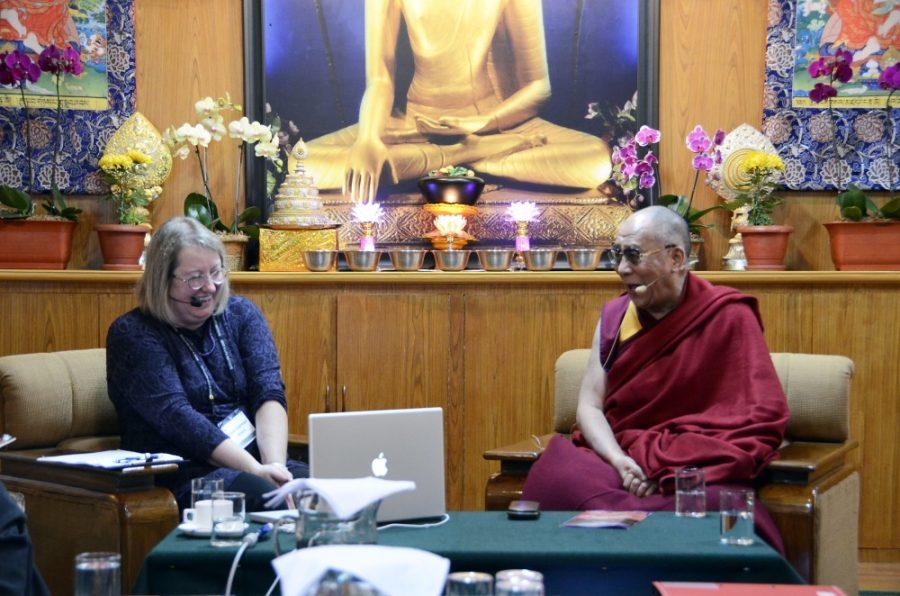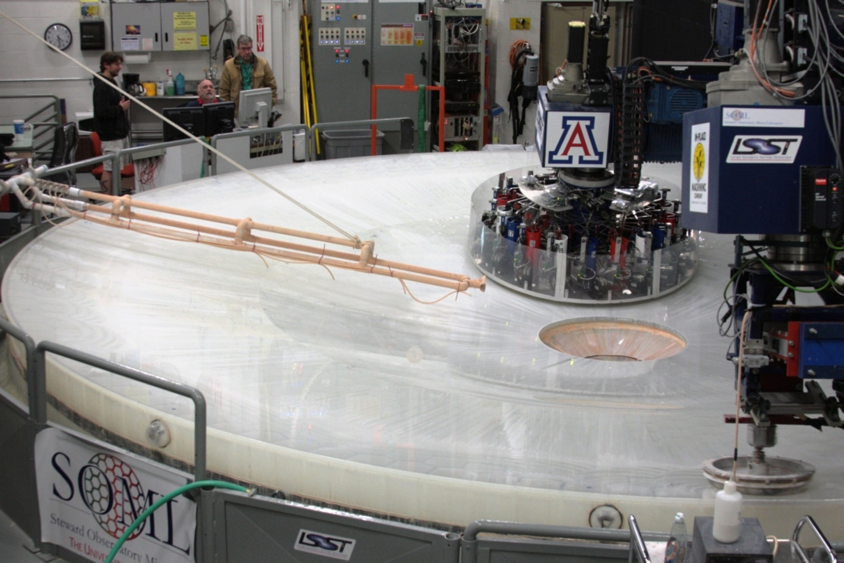Diana Liverman, co-director of the UA Institute of the Environment, was one of 13 participants in a conference including the Dalai Lama last month. “Ecology, Ethics and Interdependence,” held in Dharamsala, India, addressed ethics and the environment. Liverman studies human impact on climate change and gave a presentation detailing the effects of humans and society on the earth. The five-day conference ended Oct. 21.
Daily Wildcat: How did you feel when you heard you were chosen for this opportunity?
Diana Liverman: I was excited and intrigued … I’m flattered, to be honest.
Did you prepare for this opportunity differently than for other conferences because you knew you’d be speaking to the Dalai Lama?
The group that organized the seminar, the Mind and Life Institute, which is based in Boulder (Colorado), brought the group together in the summer to make sure the talks complemented each other and we were speaking in accessible language without technical jargon. It was different because we rehearsed what we were going to do to make sure it fit together into a story, but I knew that the Dalai Lama knows quite a bit of science. So I just had to make it clear but I didn’t have to make it simpler. We just had to make sure it could be easily translated to the monks.
What was it like presenting for the Dalai Lama?
I was the first presenter. My role was sort of to set the scientific context for the discussion and lay out how humans are affecting the environment. I was sort of the first person to speak. I was nervous and excited. The Dalai Lama makes you feel at ease very rapidly. He’s quite a joker and very kind. He started asking questions right away, which helped and made me feel he was interested. His translator, a senior Tibetan scholar, is encouraging. He’s smiling the whole time and makes you feel at ease. I was not nervous very long.
What was a typical day like at the conference?
We would all get up and have breakfast together. We stayed at a guest house that served Tibetan food, which was interesting. Our guest house overlooked the temple and we would walk down the street and see people, cows, tourists, donkeys and monks. They’d be texting and doing other things that seemed quite contemporary. We’d go through security to get into the Dalai Lama’s residence and wait for the Dalai Lama to arrive. He’s very punctual; he’d arrive at 9. We’d have presentations and drink tea because people drink a lot of tea. At 11:30 we’d have lunch. We all ate lunch together. In the afternoon, we’d meet again with Dalai Lama and then have afternoon tea at 3:30. Then we’d do a Q and A with the Tibetan monks that were there. We’d have a session with them after the Dalai Lama left. Because of their respect for him, it’s hard for them to ask questions with him there. I often ended up rushing back to guest house to get on the very slow Internet and research questions I had been asked by the monks.
What points did you take away from the conference?
For me, I do a lot of work on how climate change might affect the developing world. I saw links in my interest in vulnerability and climate change in the developing world to compassion in Buddhism and trying to help poorest of the poor … We didn’t have any cellphones or personal computers in the room. To spend a whole week actually just listening to people — we don’t do that anymore — was really rather unusual in today’s world.









